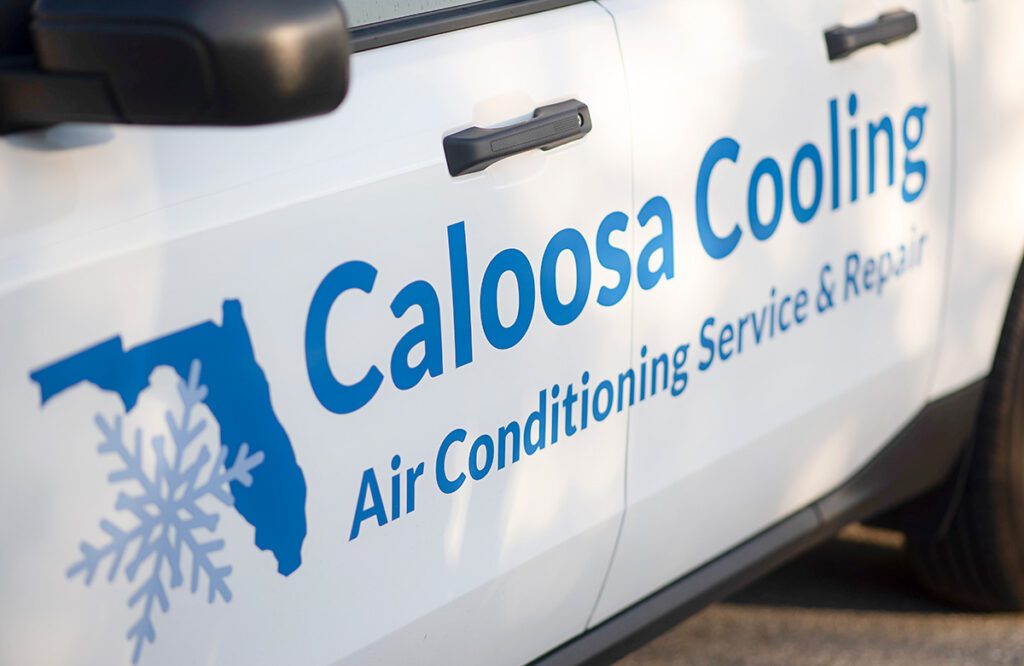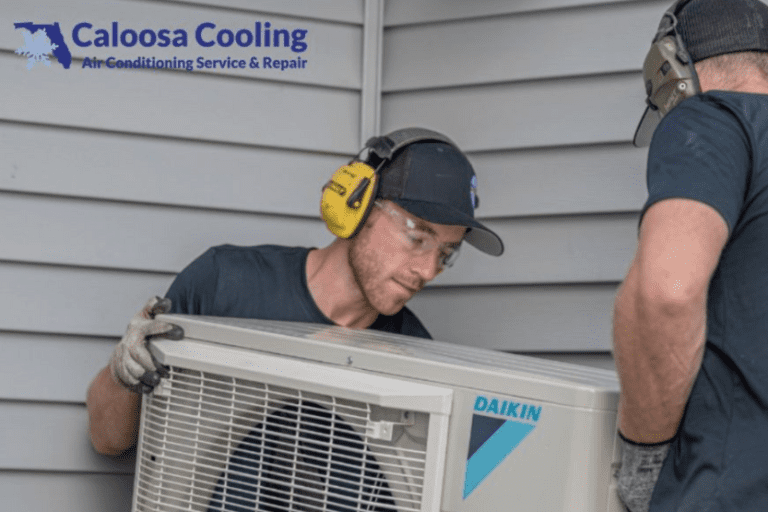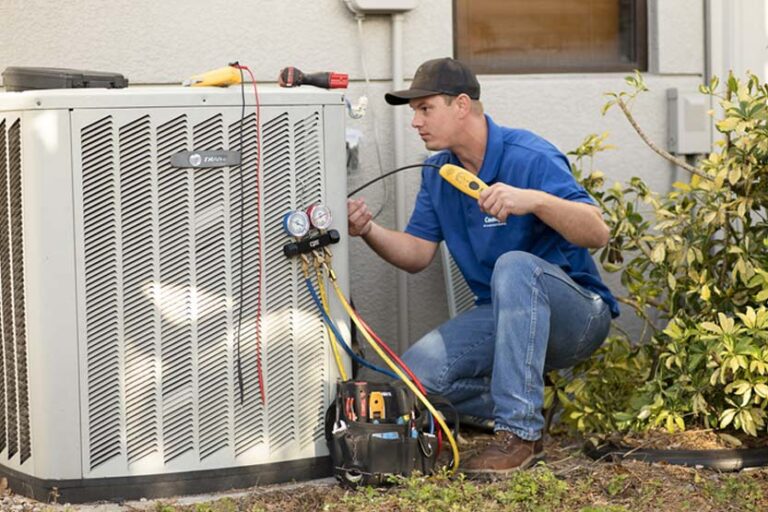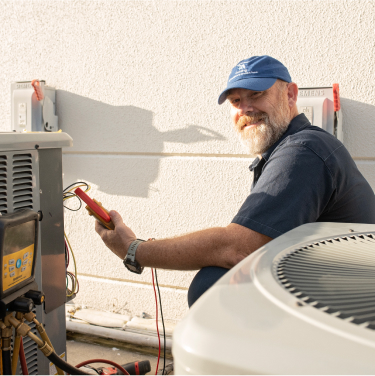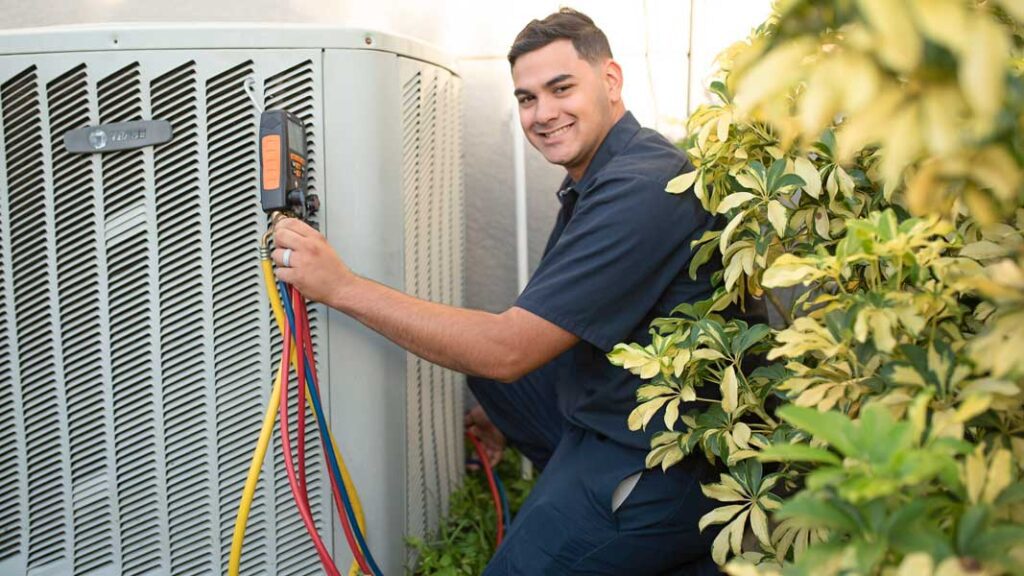
Spring brings with it the promise of warmer weather, blooming flowers, and longer days. However, for many people, it also signals the arrival of seasonal allergies. Pollen, mold spores, and other allergens can wreak havoc on indoor air quality, exacerbating symptoms for allergy sufferers. Fortunately, by taking some proactive measures, you can help alleviate spring allergy symptoms, especially indoors where you spend a significant amount of time. Here are ten tips to prevent spring allergies indoors, particularly with the use of air conditioning.
- 1. Keep Your AC Well-Maintained
- 2. Invest in High-Quality Air Filters
- 3. Control Indoor Humidity
- 4. Practice Regular Cleaning
- 5. Limit Outdoor Allergen Entry
- 6. Indoor Plants
- 7. Remove Shoes at the Door
- 8. Keep Pets Clean
- 9. Wash Bedding Weekly
- 10. Shower Before Bed
1. Keep Your AC Well-Maintained
Maintaining your air conditioning system is crucial for controlling indoor allergens. Change air filters regularly, preferably every one to three months, depending on the manufacturer’s recommendations. Clean filters prevent the buildup of dust, pollen, and other allergens, ensuring that the air circulating indoors remains clean and allergen-free.
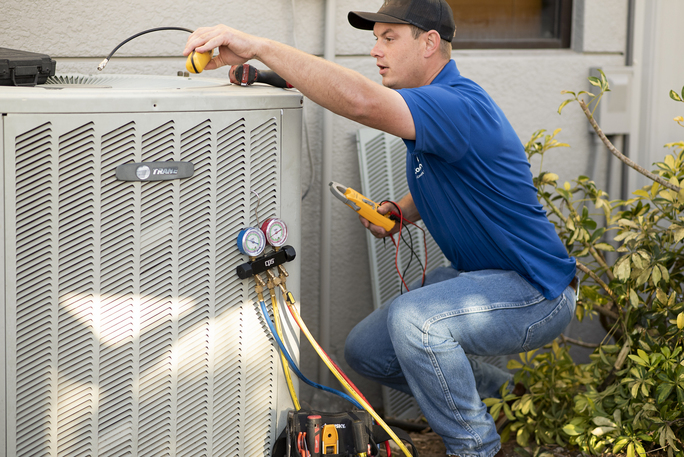
Additionally, schedule annual professional maintenance to ensure that your AC unit is functioning optimally and effectively filtering indoor air.
Call Caloosa Cooling at 239-226-0202 or message us online to schedule an HVAC System estimate and consultation.
2. Invest in High-Quality Air Filters
Not all air filters are created equal. When selecting air filters for your AC unit, opt for high-efficiency particulate air (HEPA) filters. HEPA filters can trap tiny particles, including pollen, dust mites, pet dander, and mold spores, significantly improving indoor air quality. These filters are especially beneficial for allergy sufferers as they capture airborne allergens, preventing them from circulating in your home.
3. Control Indoor Humidity
Excess humidity can create an ideal environment for mold growth, a common allergen that can trigger respiratory issues and exacerbate allergy symptoms. Use your air conditioner to regulate indoor humidity levels, keeping them between 30% and 50%. Consider using a dehumidifier in areas prone to high humidity, such as basements and bathrooms, to further control moisture levels and inhibit mold growth.
4. Practice Regular Cleaning
Regular cleaning is essential for reducing indoor allergens. Dust and vacuum your home frequently, paying particular attention to carpets, rugs, upholstery, and curtains where allergens tend to accumulate. Use a vacuum cleaner equipped with a HEPA filter to capture allergens effectively. Additionally, wash bedding, including sheets, pillowcases, and mattress covers, in hot water weekly to eliminate dust mites and other allergens.
5. Limit Outdoor Allergen Entry
Prevent outdoor allergens, such as pollen, from entering your home by keeping windows and doors closed, especially during peak pollen times, typically in the morning and on windy days. Consider using an air purifier with a HEPA filter in high-traffic areas to further reduce airborne allergens brought indoors. Additionally, remove shoes and outerwear before entering your home to minimize tracking pollen and other outdoor allergens indoors.
6. Indoor Plants
Plants can improve indoor air quality, and certain varieties may exacerbate allergies. Pollen-producing plants like chamomile, daisies, and sunflowers can trigger allergic reactions. Opt for plants with low pollen production such as ferns, palms, or succulents. Additionally, regularly wipe down plant leaves to remove dust and pollen that may accumulate on them.
7. Remove Shoes at the Door
Shoes worn outside can track pollen, dirt, and other allergens indoors. Make it a habit to remove shoes before entering your home to prevent allergens from spreading throughout your living space. Consider placing a shoe rack or a designated area near the entrance for easy shoe removal. This simple practice can significantly reduce the amount of allergens brought indoors.
8. Keep Pets Clean
Pets can unwittingly carry allergens indoors on their fur, especially if they spend time outdoors. Regular grooming and bathing of pets can help minimize the amount of pollen and other outdoor allergens they bring inside. Additionally, consider wiping down your pet’s fur with a damp cloth after outdoor activities to remove any clinging allergens.
9. Wash Bedding Weekly
Bedding, including sheets, pillowcases, and blankets, can harbor allergens such as pollen, dust mites, and pet dander. Wash your bedding in hot water weekly to effectively remove these allergens. Additionally, consider using allergen-proof covers for pillows and mattresses to create a barrier against dust mites and other allergens.
10. Shower Before Bed
Taking a shower before bedtime can help rinse away allergens that may have accumulated on your skin and hair throughout the day. This simple practice can prevent allergens from transferring to your bedding, where they can exacerbate allergy symptoms while you sleep. Opt for a lukewarm shower and thoroughly wash your hair and body to remove any allergens effectively.
Symptoms, Causes, and Treatment of Seasonal Allergies
Symptoms
Seasonal allergies, also known as allergic rhinitis or hay fever, can manifest with various symptoms, including:
- Sneezing
- Runny or stuffy nose
- Itchy or watery eyes
- Scratchy throat
- Coughing
- Fatigue
Causes
Seasonal allergies are primarily triggered by airborne allergens, such as pollen, mold spores, dust mites, and pet dander. When these allergens come into contact with the mucous membranes of the nose and eyes, they can cause an immune system reaction, resulting in the release of histamines and other chemicals that cause allergy symptoms.
Treatment
Several treatment options are available to alleviate seasonal allergy symptoms, including:
- Over-the-counter antihistamines: These medications can help relieve sneezing, itching, and runny nose symptoms by blocking the action of histamines.
- Decongestants: Decongestants can provide temporary relief from nasal congestion by constricting blood vessels in the nasal passages.
- Nasal corticosteroids: These prescription or over-the-counter nasal sprays can reduce inflammation and alleviate nasal congestion, sneezing, and runny nose symptoms.
- Allergy shots (immunotherapy): Allergy shots can help desensitize the immune system to specific allergens over time, reducing the severity of allergic reactions.
- Avoiding allergens: Whenever possible, avoid exposure to known allergens, such as pollen, by staying indoors during peak pollen times, keeping windows closed, and using air conditioning with HEPA filters to filter indoor air.
By implementing these tips to prevent spring allergies indoors and understanding the symptoms, causes, and treatment options for seasonal allergies, you can minimize the impact of allergens on your health and enjoy a more comfortable living environment during the spring season.
Southwest Florida HVAC Contractor
Caloosa Cooling provides comprehensive AC repair services to ensure that your air conditioning system operates efficiently and effectively. Skilled technicians at our air conditioning company, in Fort Myers, are trained to diagnose and address a wide range of AC issues, restoring comfort to your home or business.



